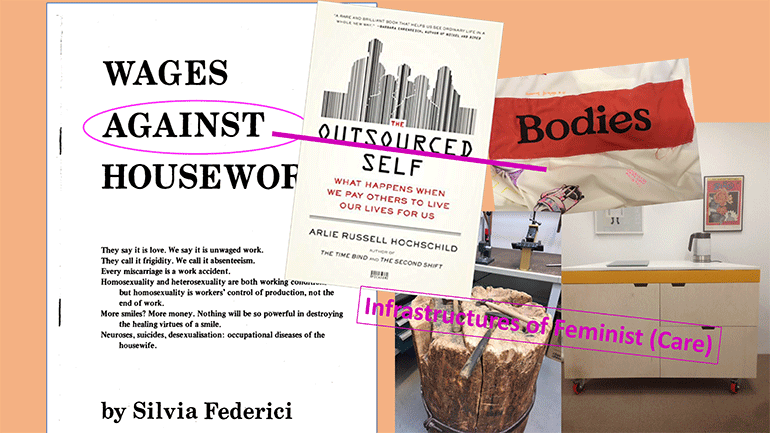Richards, Jenny
Against the Outsourced Body: Infrastructures of Feminist Care

Against the Outsourced Body: Infrastructures of Feminist Care takes as its starting point the current expansion of commercialized care and social reproductive work and the history of its development since the 1970s. Social reproduction and care work is the work that enables us to survive from one day to the next, it is our life support system, the cooking, cleaning and caring that has been historically performed by women and has been a type of work often overlooked, unpaid or paid poorly. The invisibilisation of this work was the focus of much second-wave feminist organizing of the 1970s which sought to highlight and revalorize social reproduction and care work. The payment for this work has a long history connected to the carrying out of this work by classed, gendered and racialized bodies. Since the 1970s and the advent of second wave feminism, it can be argued that this sphere of paid labour has expanded and the feminist cries from the Wages for Housework Movement, have been met by the market, ensuring for those that can afford to, they can outsource their social reproduction to (often under-) paid workers who can care for the elderly, take care of your kids and if you want, a cuddle or a bit of friendship over Skype. Together with the diminishing investment in state welfare it means that for those that can't afford, care is responsibilised on individuals and communities with lessening time and capacity to carry it out. Research into the outsourcing of care and social reproductive work offers a lens of interrogation to understand new efforts to devalue social reproduction and care within societal and environmental precarity.
However, pushing through this backdrop, is a growing number of artistic and curatorial practices that are working to push against these logics, to build infrastructures which re-member, re-centre and re- personalise relationships of social reproduction and establish concrete infrastructures and space to take care of ourselves and each other.
Jenny Richards research focuses on questions concerning labour, health and the body, often developed through collaborative and collective practice. She was previously curator of Marabouparken Konsthall where she developed a programme of residencies, exhibitions and events focused on collective and collaborative practices. Prior to this she was co-director of Konsthall C, Stockholm.
Admitted to KTH Royal Institute of Technology
Principal Supervisor: Helena Mattsson
Assistant supervisor: Janna Graham and Lisa Tan
Project period: 2019-2023